pregnancy
Latest

Garmin adds pregnancy tracking to its smartwatches
Garmin has added pregnancy tracking to its smartwatches, giving you a way to measure progress and improve your health before the baby arrives.
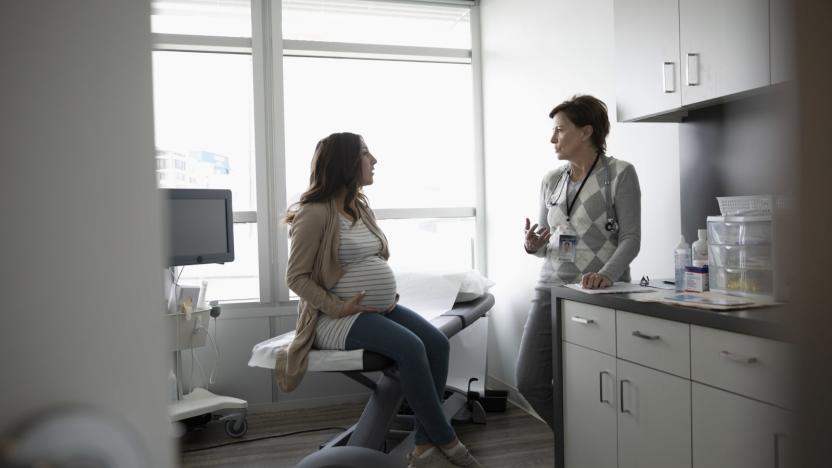
MIT’s algorithm could improve imaging techniques used during pregnancy
The placenta plays a critical role in pregnancy: connecting the fetus to the maternal blood system. But assessing placental health is difficult because modern imaging techniques provide limited information. Researchers from MIT's Computer Science and Artificial Intelligence Lab (CSAIL) think they might be able to change that using a volumetric mesh-based algorithm.

Indian health agency exposes details on millions of pregnant women
A health department in India exposed more than 12.5 million medical records for pregnant women after it failed to secure a database. The records span five years for a state in the north of the country, and include sensitive data such as family medical history, the mother's age, details of other children, doctor information and court case details.

Health and beauty tech continues to fail pregnant women
There's a thread on Fitbit's Feature Suggestion forum titled, "Add Pregnancy/Nursing mode for more accurate calorie estimates," with the first comment logged in December 2013. It was locked at 328 comments and 1,388 upvotes. In the comments, hundreds of women chimed in to agree and add their own requests, including tweaks to Fitbit's menstruation-tracking features, nursing settings, weight-gain monitoring and other pregnancy-specific notifications. A moderator lurked, editing labels and updating the status of the request. At 4:41PM on May 6th, 2014, a moderator updated the pregnancy-feature thread to "New." By February 14th, 2015, the status had shifted to, "Not currently planned."

The Owlet Band monitors your unborn baby while you sleep
Owlet is known for making connected baby monitors and teeny tiny smart socks (yes, really), but its latest innovation is built to use before baby is actually born. The Owlet Band is a soft, thin circle of fabric that wraps around an expectant mother's abdomen and lower back, and it has a small plastic sensor front-and-center. Using passive ECG technology, the Band is able to read and record the baby's heart rate, count its kicks, identify contractions and track the mother's sleeping position. Essentially, it's a sleepy-time peace-of-mind machine for anxious parents-to-be.
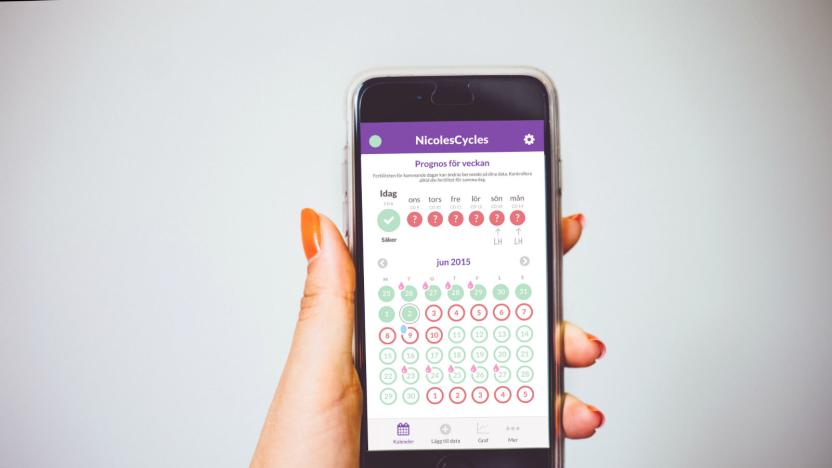
Contraceptive app under fire for causing unwanted pregnancies
A contraceptive app used by more than 500,000 women has come under fire after reportedly causing 37 unwanted pregnancies. Stockholm's Södersjukhuset hospital has now reported the Natural Cycles app to the Swedish Medical Products Agency (the government body tasked with the regulation of medical devices) according to news outlet SVT.
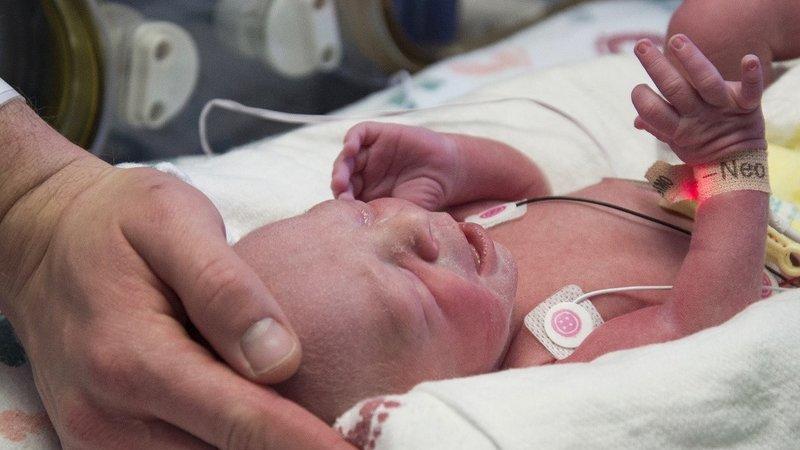
Uterus transplant recipient gives birth for the first time in the US
A woman who received a uterus transplant has given birth to a baby -- a first in the US, Time reports. She is part of an ongoing uterine transplant clinical trial taking place at Baylor University Medical Center at Dallas and she, like the other women in the trial, has a nonfunctioning or nonexistent uterus. Her uterus was donated by another woman, Taylor Siler, who wanted to be able to give someone else the opportunity to have a child. The trial, which accepts both living donations, like Siler's, and donations from deceased individuals, will complete 10 transplants. Eight have been completed already and while at least three have failed so far, a second trial participant is now pregnant following a successful transplant.
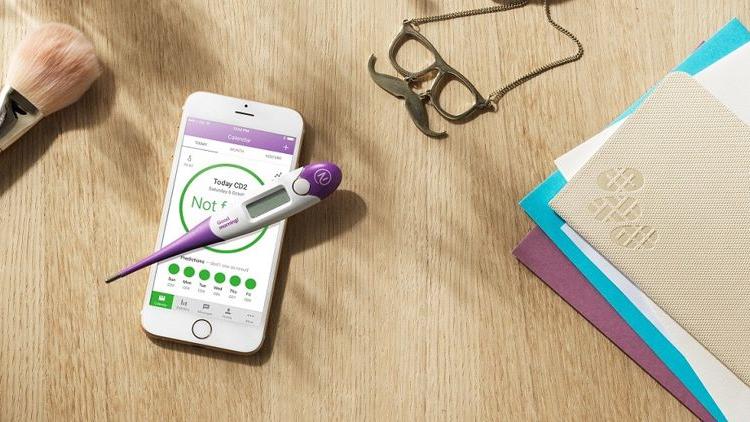
Natural Cycles says contraceptive app is more effective than the pill
Contraceptive app Natural Cycles is more effective than the pill, according to the latest and largest study into the app's efficacy. After testing 22,785 women throughout 224,563 menstrual cycles, the startup found the app provided 99 percent contraceptive effectiveness if used perfectly. If used "typically", the app was 93 percent effective. The contraceptive pill, meanwhile, is 91 percent effective.

Semen, centrifuges and a personal journey in male fertility
In August 2012, I came into a neon-pink shot glass. Nine months later, a baby was born. I'd never planned on having a child of my own -- and to be clear, I still don't -- but when two of my best friends started looking for a donor, I jumped on the opportunity. For those of us who can't have children with our partners through good old-fashioned sex, the path to pregnancy is complicated and expensive. After careful consideration, my friends decided on what's commonly referred to as the Turkey Baster Method. I would masturbate into a sterile collection cup and pass the resulting semen to my friend who would draw it into a syringe and deliver it to his wife. She would then plunge it into her vagina.

Bloomlife's baby bump wearable tracks your contractions
While there are several ways to entertain your unborn child with the latest chart toppers, the kind of technology that's invaluable during pregnancy is typically reserved for hospitals and clinics. But a company called Bloomlife wants to bring one key piece of monitoring kit into the home. It's created a pregnancy wearable -- a small device that sticks to your baby bump -- which measures contractions by reading the electrical activity of uterine muscle. A companion app for iOS and Android receives this data, timing contractions in real time and promising a much more accurate reading than existing contraction calculators.

ICYMI: Finally, cars can morph into robots!
try{document.getElementById("aol-cms-player-1").style.display="none";}catch(e){}Today on In Case You Missed It: A Turkish company says that for millions of dollars, it'll make you your very own Autobot (called a LeTrons) and while whether the car is actually driveable may be in question the video is still fairly incredible. No less an advancement for conductive thread, a $34 million grant from the National Science Foundation is letting a group of doctors, scientists and fashion designers create clothing that at-risk pregnant women can wear to track their health. If you're into augmented reality, this Pong game should get you going. As always, please share any interesting tech or science videos you find by using the #ICYMI hashtag on Twitter for @mskerryd.

CDC warns against visiting a Zika-hit Miami neighborhood
Reports of the first active Zika transmissions in the US are leading to some far-reaching precautions in Miami. The Centers for Disease Control and Prevention are warning both pregnant women and their partners to steer clear of the city's Wynwood neighborhood (including The Shops at Midtown Miami) out of concern that they might be infected. The CDC is also asking future mothers to get Zika tests in their first or second trimesters if they've been in the area from June 15th onward, and to use condoms (or other barrier-based contraceptives) if they have sex.

A new app could help doctors predict risks of preterm birth
Researchers from King's College London have developed a mobile tool to help doctors better predict preterm birth dangers. The QUiPP app relies on gathering personal data, such as the state of a previous pregnancy, to anticipate a woman's chances of delivering a child before 37 weeks. Its algorithm also takes into account information about the cervix and fetal fibronectin, a vaginal fluid that doctors start testing in the first half of the typical 9-month term.

ICYMI: Aging exoskeleton suit, the biometric bed and more
#fivemin-widget-blogsmith-image-726881{display:none;} .cke_show_borders #fivemin-widget-blogsmith-image-726881, #postcontentcontainer #fivemin-widget-blogsmith-image-726881{width:570px;display:block;} Today on In Case You Missed It: Applied Minds built an exoskeleton suit for insurance company Genworth and took it on the road to CES to give conference goers a dose of empathy for the elderly. The suit reenacts the physical ailments people often suffer as they age, from vision loss to hearing problems.

I don't need a damn Bluetooth pregnancy test
My first response when I heard about the First Response Bluetooth pregnancy test was this: Nope. Nope, nope and nope. Of all the things in my life that need to be "connected" or "have an app," a pregnancy test ranks dead last. Taking a home pregnancy test is one of the most private rituals that a woman of childbearing age can have. It is also one of the scariest and most heart-wrenching experiences a woman can go through. And to somehow turn it into a way to piggyback on the Internet of Things trend strikes me as terribly opportunistic and even a little insensitive.

You can now buy a Bluetooth pregnancy test
While I might not be in the target market for First Response's new Bluetooth-enabled Pregnancy Pro test, it's obvious that this new test ties right into the bigger connected health trend that we're seeing all over CES this year. The device, which will cost between $15 and $20 depending on where you buy it, looks like a traditional pregnancy test, but you won't see a plus or minus symbol on it.
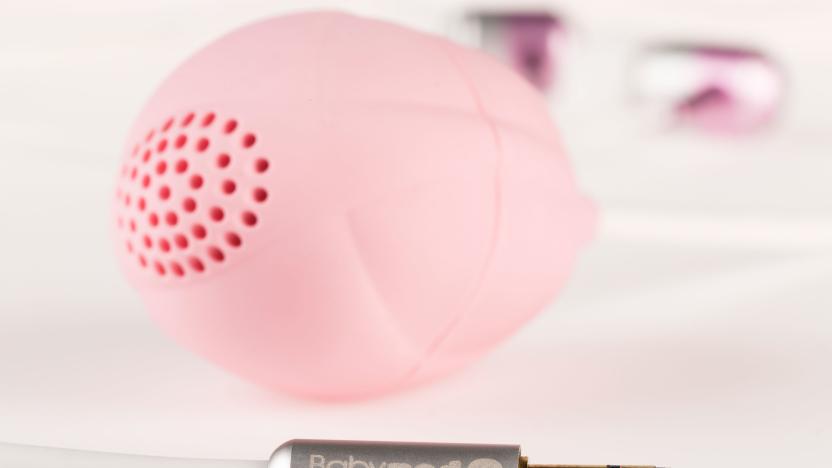
Give your fetus a concert with vaginal sound system, Babypod
Some people are born to get down; others are gestated. Spanish gynecology clinic Institut Marquès wants to tap into the fetal-music market with Babypod, a speaker that expecting mothers insert into their vaginas a la tampons to play songs for their unborn babies. Babypod connects to a smartphone and plays music directly in the vagina, which is the only way for a fetus to hear unmuffled sounds, the company says. It's also more stylish than giant headphones wrapped around your belly.

FDA demands Kim Kardashian remove Instagram pill ad
The FDA sent Kim Kardashian a warning letter last week, demanding that she remove an Instagram post in which she endorsed a bottle of Diclegis morning sickness pills but failed to mention any of the potential side effects associated with the product. Kardashian is a paid promoter of the product, which is made by Duchesnay USA. Her post "misleadingly fails to provide material information about the consequences that may result from the use of the drug and suggests that it is safer than has been demonstrated," according to the FDA.
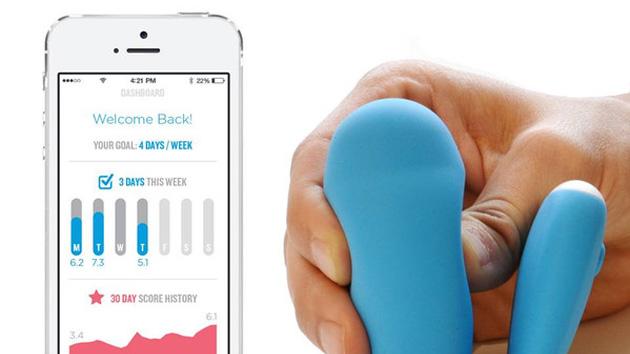
Smart Kegel exerciser can hurt women as much as it helps
If men can have a fitness device for their nether regions, women certainly can, too. Minna Life has released the kGoal, a $149 "smart Kegel exerciser" that helps you work your pelvic floor muscles (read: the vaginal area) in order to both improve your sexual performance and fight disorders like incontinence. It provides real-time feedback through sound, touch and visuals, and you'll know you're on the right track through a companion smartphone app that gauges your progress. If all goes well, kGoal should take the mystery out of Kegels -- you'll build strong muscles by developing a proper technique and setting achievable goals.

'Mommy Tummy' simulator takes you from normal to pregnant in two minutes (video)
You can test drive a car before buying it, so why not take the same approach to pregnancy? Such is the idea, apparently, behind the "Mommy Tummy" -- a system that gives women (or men) a taste of what it would feel like to have a bun in the oven, even if they haven't received any lovin'. Developed by researchers at Japan's Kanagawa Institute of Technology, this simulator invites users to don a jacket replete with rubber balloons, vibrators, a water bag and other things you'd expect to find in Buffalo Bill's basement. Once strapped on, the jacket's midsection gradually expands as it swells with warm water funneled in from an adjacent tank, resulting in an immaculately conceived baby bump. A compressor, meanwhile, slowly augments the jacket's chest area, while a separate array of balloons rapidly inflate and deflate, thereby mimicking the kicking and side-to-side movements of a real-life fetus. KIRF mothers can monitor their KIRF baby's vital signs on a monitor, though they'll have to pay close attention. Unlike real pregnancies, the Mommy Tummy's gestation period lasts a merciful two minutes, giving your boyfriend just enough time to formulate a coherent response. Must-see video footage after the break. Update: Turns out our bros at Joystiq got some hands-on time with this bundle of joy at TGS. Check it out. [Image courtesy of Toutlecine.com]














